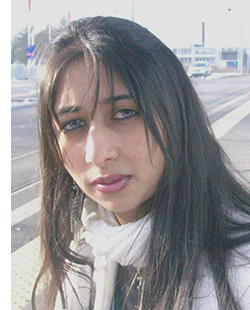
I have worked and studied at South African universities since beginning my undergraduate degree. I started my research career at the Council for Scientific and Industrial Research (CSIR), which is one of 10 national research facilities, and I am currently based in the Quantum Research Group at the University of KwaZulu-Natal (UKZN). Here, I will reflect on some of my experiences studying in South Africa.
Freedom of choice
One benefit of attending university in South Africa is the unique structure of the degree system. The arrangement is unusual in that there are four exit points during the completion of three degrees. We start off with a three-year Bachelor of Science (B.Sc.) degree, followed by a year of honors studies. The masters and doctoral degrees begin after the honors year. If you are not pursuing a career in research, you have the option of completing your education after earning a B.Sc. This allows students to tailor our honors year material to the research area we wish to pursue during our M.Sc. and Ph.D., and so we are more prepared and focused when beginning those higher-level degrees.
Availability of resources and funding
South Africa has a growing scientific community, but the opportunities for collaboration and networking are still limited. This can impact the level of research and the growth of facilities taking place in the country. If you are trying to build a research group, it may take more effort and time than other places. However, the lack of certain resources encourages us to look elsewhere for necessary expertise. This helps us build relationships with researchers across the globe. There is also funding available to promote and host national and international conferences, and there are extensive online resources to help fill any gaps.
A prerequisite for registering for a M.Sc. or Ph.D. degree at any South African university is a source of funding for the duration of your studies. Most candidates are awarded a scholarship either by the Department of Science and Technology, the National Research Foundation or national facilities such as the CSIR. The South African government recently set a target of spending 1.5 percent of its budget on research and development by 2018. Funding is also provided by universities such as UKZN, which has its own scholarship program.
Networking opportunities
I have been fortunate enough to attend 22 academic conferences since completing my M.Sc. Conferences are excellent platforms to grow within your field and expand your network of colleagues and friends. There is one major national physics conference in South Africa, known as the South African Institute of Physics Conference. It is hosted annually by various institutes and is currently in its 59th year. My research group also hosts the Quantum Information Processing Communication and Control (QIPCC) Conference each year. This meeting is focused on quantum optics and information science, and is an initiative of the South African Research Chair for Quantum Information Processing and Communication.
Joining professional associations is also a great way to network, and there are several options in South Africa. The South African Institute of Physics is a prominent association for researchers. It has student memberships and provides discounts for student conferences. There are also three OSA Student Chapters: Durban, Pretoria and Stellenbosch. I am part of the newly formed Student Chapter at the UKZN, Durban. Since we joined OSA, we have had numerous avenues opened to us. I recently attended an IONS conference in Montreal, Canada, which was a wonderful experience for me and gave me lots of ideas for growing our Chapter at UKZN.
As a South African student, networking opportunities and the increasing availability of resources have played a major role in expanding my opportunities as a young researcher. I am happy to be contributing to the developing community of scientists in my country.
Yaseera Ismail completed her masters at the CSIR-National Laser Centre in Pretoria, South Africa, where her research focused on novel laser beam shaping for optical trapping and tweezing. She is currently completing her Ph.D. in quantum communication within the Quantum Research Group based at the University of KwaZulu-Natal, Durban, South Africa.
